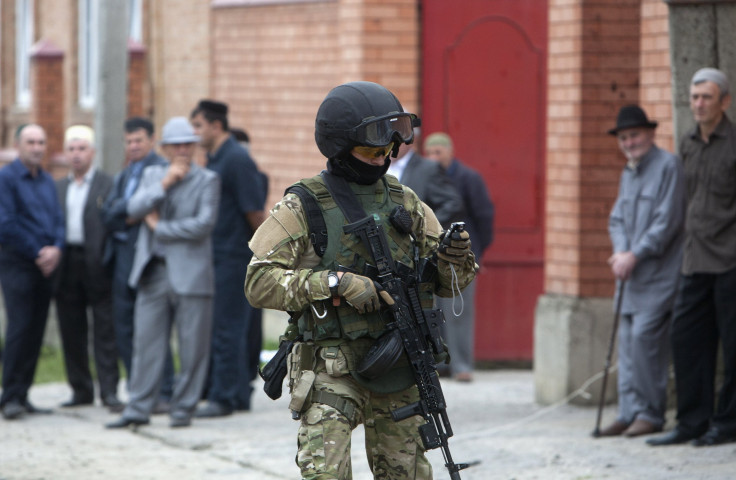Russian Islamic State Arrest: Tajikistani 'Recruiter' Detained By FSB

Russian authorities arrested a suspected Tajikistani-born Islamic State group recruiter on terror charges in the northern Russian oblast of Arkhangelsk on Wednesday. The man, who has not been named, is a permanent resident of Russia and supported the Islamic State, the Farough Brigades and the Islamist Party of Turkestan, a press release by the Federal Security Service (FSB) said.
“He published many materials on the Internet which aimed to incite people to commit violence against ‘non-Muslims,’ inciting terrorist attacks in Middle Eastern and former Soviet countries ...," the FSB said, adding that he made statements online like “when you meet a Russian, kill him.”
The man was a citizen of Tajikistan but had permanent residence in Russia and reportedly planned to become a Russian citizen. Tajikistan is a former Soviet republic made up primarily of ethnic Tajik Sunni Muslims, although there are minority Russian and Uzbek populations. The FSB did not say how old the man was or when he moved to Russia.
The FSB estimates that 1,700 Russian citizens are fighting on behalf of the radical Islamist faction in Syria and Iraq. Earlier on Wednesday, Russian Foreign Minister Sergei Lavrov called the Islamic State group Russia’s “main enemy,” and warned that returning Russian militants could “wreak havoc at home.”
“I consider [the Islamic State group] to be our main enemy right now, if only for the simple reason that hundreds of Russian citizens, hundreds of Europeans, hundreds of Americans are fighting in the ranks … as well as citizens of the [Commonwealth of Independent States],” Lavrov told a Moscow radio station, according to Radio Free Europe/Radio Liberty.
Lavrov added that Russia was supplying Syria and Iraq with weapons to prevent the region from falling into chaos. He also criticized the U.S. for blocking a Russian proposal to add the Islamic State group to the United Nations terror organizations list. The U.S. argued that the Islamic State group was a splinter group of al Qaeda and so qualified as a designated terror group per a 1999 resolution.
© Copyright IBTimes 2025. All rights reserved.




















